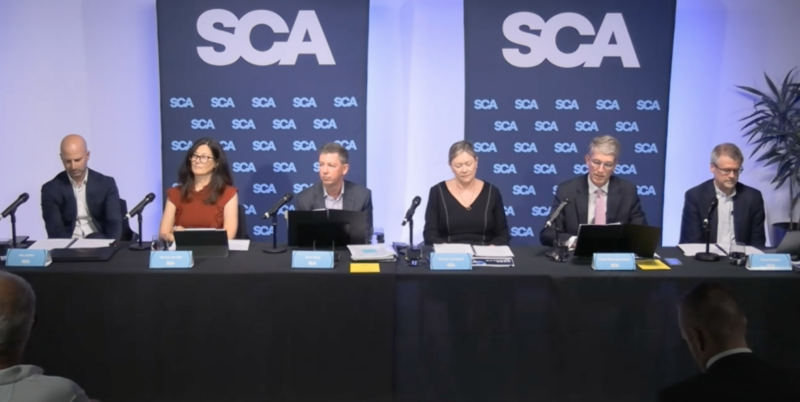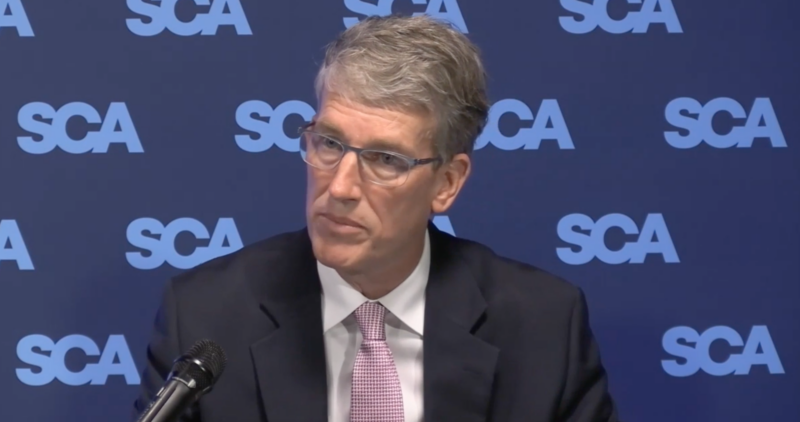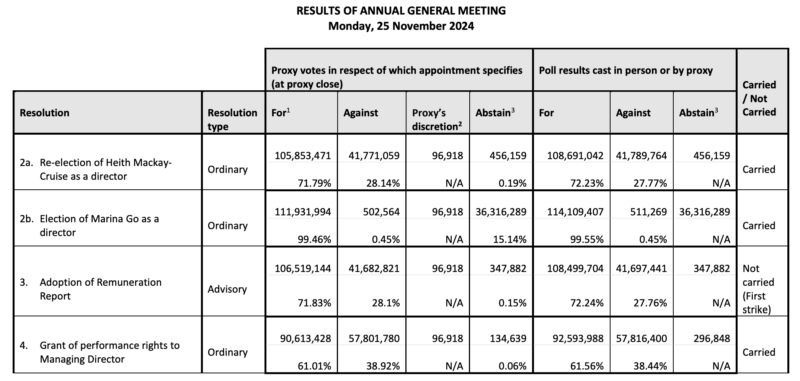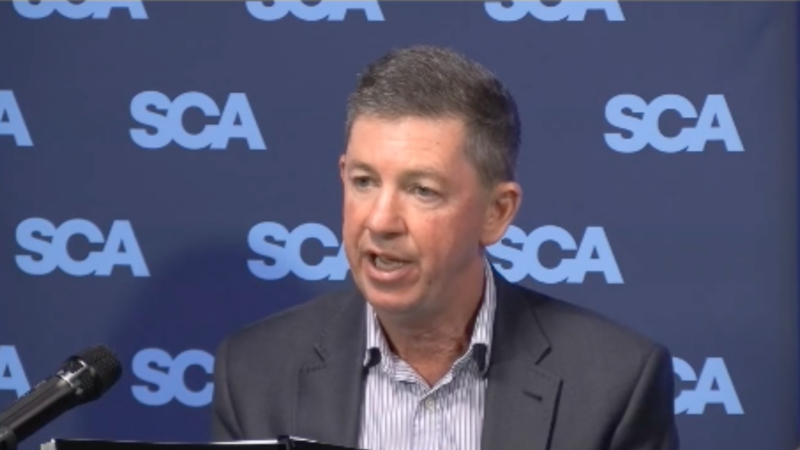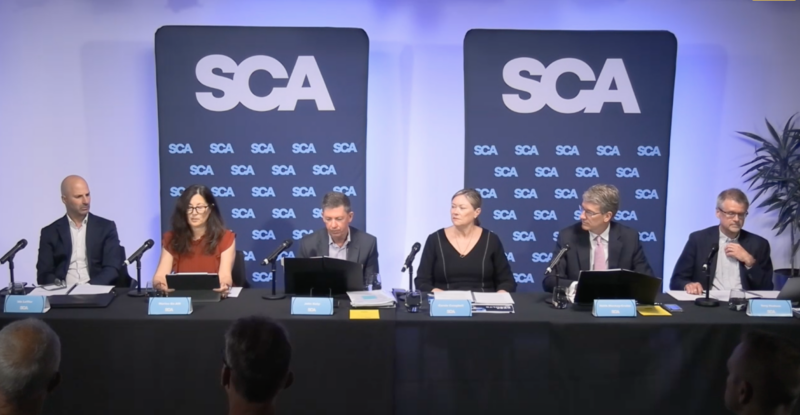
SCA board addresses workplace culture, gambling ads, and ‘economically unsustainable’ ownership laws
Shareholders instigated a first strike against the company’s renumeration report, but SCA’s board members largely avoided the heat at its AGM on Monday, outlining plans to “dispose” of its regional TV assets and pointing out its positive score card in regards to workplace culture.
SCA chairman, Heith Mackay-Cruise, used his address to rally against “the destruction caused” by the expensive, prolonged and unsuccessful ARN takeover proposal.
“While our management team did not lose focus on daily business activities during this process, it did disrupt radio advertising markets, hampering our ability to monetise our audiences and we delayed certain business transformation initiatives,” Mackay-Cruise said.
Likewise, the director – who managed to keep his chair today but faced a 28.14% ‘against’ vote – pointed to “Australia’s pre-internet inter-regulation” as being a roadblock, saying these anti-competition laws reward digital platforms such as Meta, Google and Spotify, and “severely restricts our ability to compete with them on a level playing field”.
Mackay-Cruise said: “We celebrate our connection to local communities around Australia but without regulatory change to enable consolidation and modernised regulation of Australian media businesses, that connection will in time become economically unsustainable.”
Mackay-Cruise also addressed workplace culture in his address.
“I would like to comment on a current topic in Australian media circles and that is corporate culture. Revelations about workplace behaviour of some of our media peers have received high profile attention in recent months. We have looked closely at publicly available reports about these matters and considered the corresponding risks and opportunities for improvement in our own workplaces.
“Your board firmly believes that SCA needs an inclusive and diverse workforce where all employees are treated fairly and enjoy a safe working environment.
“We believe that SCA’s current workplace arrangements are sound and adequate to address these risks but equally we acknowledge the need for vigilance and for prompt action when problems emerge.”
CEO John Kelly was hit with a 38.44% vote against the resolution to grant him performance rights and was forced to address the less-than-prompt action in regards to the sale of the company’s regional TV assets. In early September, he told Mumbrella the sale should be finalised within “a few months.”
Kelly now said the company will “actively progress opportunities to divest our television assets” in coming months, later stressing during his AGM address “we are in active negotiations with several parties with a view to disposing of our television assets”.
He noted “our regional television business dragged on our results again,” pointing to an 8.7% revenue drop and 28.9% earnings slide in that sector.
“We maintained tight cost controls but are exposed to CPI cost escalation in broadcasting transmission and playout contracts,” he said.
Shareholders’ anger during the AGM was largely spared for those who left the board years ago, with the 95% drop in share prices over the last five years accredited to a series of bad investments made by prior boards. Still, Kelly faced a grilling for his decision to invest in a digital audio network rather than licence content, like ARN has with its iHeart deal in Australia.
Kelly confirmed that $55 million has been spent on establishing a digital audio presence, driven by the LiSTNR property, but pointed out that CapEx is on target to be below $10 million for the current financial year.
Mackay-Cruise defended the broadcaster’s “approach to the tricky social issue of gambling advertising,” by saying SCA takes its “social licence to operate in all communities across Australia” seriously.
“We do have sponsorship from gambling companies, but they are specific to sports programming within Triple M and associated with LiSTNR. It is a particular vertical and segment for which we operate.
Mackay-Cruise also addressed “the perception that we may be running advertisements for some companies that are not appropriate,” saying: “We operate under very strict guidance from the industry body and the regulators with regards to what we can actually produce, when we can produce it, and air it – that also goes to advertising.
“There is an appropriate complaints tribunal process that we review, not just as a management team but as a board as well, with regards to both customer complaints and also — whether they be for content from our on-air talent or from our advertisers — we believe we have a compliant and robust process, and our advertising dollars from gambling-associated companies is appropriately linked to our sports product.”
In regards to protecting this income stream against regulations, SCA does not “directly lobby into Canberra” but is active with regards to CRA and the Free-to-Air TV industry body.
“Those bodies are very active with regards to all aspects of reform,” Mackay-Cruise pointed out, “whether it is media reform, which we have a view on, or whether it is other reform or regulatory affairs that are coming through our Federal Government”.

